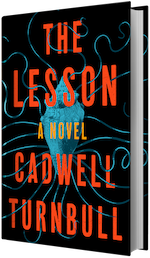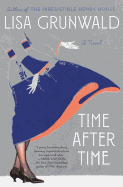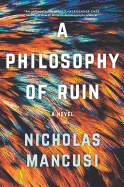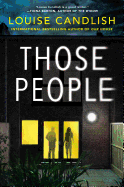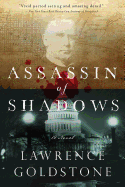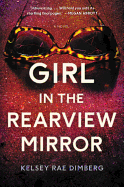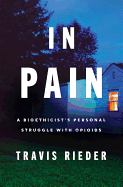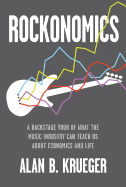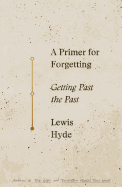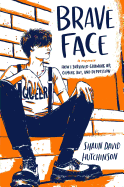The canon of science fiction brims with first contact stories, but rarely do those stories draw such strong and poignant parallels to humanity's history of colonialism as Cadwell Turnbull's extraordinary debut, The Lesson. Set in St. Thomas in the Virgin Islands, the novel follows three families as they navigate a world entirely changed by the arrival of the Ynaa, an alien race with superior strength and technology but with little regard for humans.
The arrival stuns the islanders, leading to chaos of all kinds. But even before the aliens land on Earth, drama follows our protagonists. Derrick and Patrice are teens when we first meet them. Having been platonic friends their whole lives, they're navigating newfound feelings brought on by surging teenage hormones. Further straining their friendship is Derrick's recent questioning of God and Christianity and Patrice's desire to leave the island for college. Patrice's father, a university professor, has begun an affair with a former student, and Patrice's mother has begun to fall in love with a woman she works with. Derrick's younger sister, Lee, struggles to find her own footing in the world, while their religious grandmother, Henrietta, sternly rules their household.
As the novel unfolds, we follow this cast of characters over the course of years, watching Derrick and Patrice grow into adults and their parents and grandmother drift further apart as their relationships with each other change with time. The Ynaa arrive just before Derrick and Patrice graduate high school. The novel's focus never leaves the Virgin Islands, so the reaction of the world at large remains a mystery. We do learn, however, that the aliens bring with them technologies that improve humanity's energy sources and healthcare. But those gifts come at a price: the aliens will kill a human at the slightest provocation, and they do kill. Often.
To ease the relations between the two races, an alien named Mera serves as an ambassador to Earth. Unlike the rest of her kind, Mera has highly developed emotions and the patience to withstand criticism and physical attacks. Derrick is moved by her kindness (and beauty) and goes to work in her office. His position there inspires resentment and suspicion among the islanders, including his grandmother, who thinks Mera and the rest of the Ynaa are "demons." This tension forms a subplot that grows as tense as the main one.
The Lesson is mostly a character-driven story, its plot shaped by the evolution of its protagonists' relationships. It delves deep into the psychology of its characters to offer a clear-eyed look at just how flawed but compassionate humans can be. It's also a richly drawn portrait of the Virgin Islands, their landscape and people and sounds and colors jumping to life on every page. In one especially poetic passage, Patrice stands on a beach at night staring into the ocean. She "heard a splash below her. She looked down just in time to see the tail of something dark breach the surface and then disappear again. It was so quick, it could have been a trick of the eye, a phantom, a twin soul." Lyrical prose like this and well-observed human behavior combine again and again throughout the novel to create some of the most memorable scenes in a work of science fiction in recent memory.
Turnbull is at his finest, however, in the chapters set hundreds of years earlier, when slavery was still the law of the land. These chapters are few in number, but they bring to mind the urgent and vibrant writing of Octavia Butler. They also make explicit the comparison between the Ynaa's arrival and the colonialism that first drew white settlers to the Virgin Islands. The early colonialists, like the aliens, brought with them the bounties of progress--gifts that ultimately destroyed the islanders' freedom and traditional ways of life.
Also impressive is Turnbull's sympathetic portrayal of divergent belief systems. The arrival of the Ynaa drains what's left of Derrick's spiritual beliefs, but bolsters the beliefs of Henrietta. Both characters are equally realistic and justified in their responses to such a life-changing event. Mera is also a highlight of the novel. As the Ynaa's ambassador to the human race, she is forever navigating a complex set of expectations. On the one hand, the Ynaa demand her loyalty to their cause, which is never made explicit but involves teaching "a lesson" to the human race. On the other hand, she wants to protect humans and their fragile bodies. Human pain, she learns, is unlike anything the Ynaa can feel. If the aliens had any idea, she thinks, they'd show far more respect for human life.
From beginning to end, The Lesson is thrilling, moving and thought-provoking. This may be Turnbull's debut, but it reads like the work of a seasoned writer. It's also proof that science fiction is more than entertaining--it's a vital genre that lays bare the perils of the age and the boundlessness of the human spirit. --Amy Brady
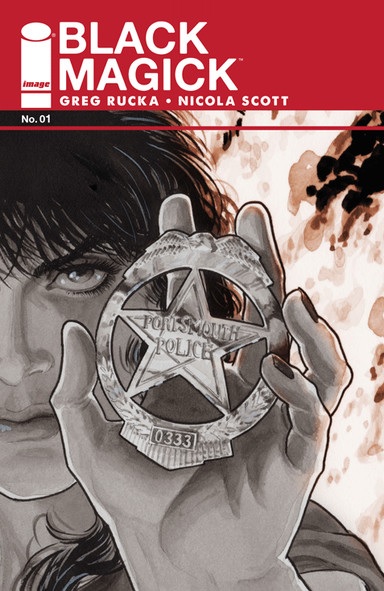 Fortunately, excellent horror comics are not hard to find right now, and I have a few relatively recent recommendations to offer. Greg Rucka and Nicola Scott's Black Magick (Image Comics, $9.99) is both accessible and supremely suspenseful, a stand-out in large part due to its protagonist, a detective and--secretly--a witch. The character's unlikely occupation allows the creators to combine horror and police procedural to a remarkably effective degree, with humor occasionally playing off Scott's foreboding art.
Fortunately, excellent horror comics are not hard to find right now, and I have a few relatively recent recommendations to offer. Greg Rucka and Nicola Scott's Black Magick (Image Comics, $9.99) is both accessible and supremely suspenseful, a stand-out in large part due to its protagonist, a detective and--secretly--a witch. The character's unlikely occupation allows the creators to combine horror and police procedural to a remarkably effective degree, with humor occasionally playing off Scott's foreboding art.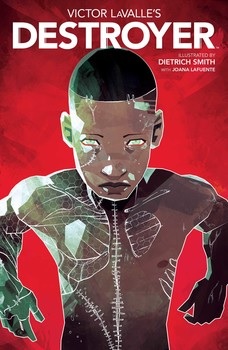 Victor Lavalle's Destroyer (Boom! Studios, $19.99) also toys with ancient horror archetypes, this time modernizing the story of Frankenstein's monster. Victor Lavalle's reputation as a horror novelist is well-earned--Destroyer is a confident foray into comics with illustrator Dietrich Smith. The comic takes countless unexpected turns, grounding its horror in modern-day issues such as police shootings.
Victor Lavalle's Destroyer (Boom! Studios, $19.99) also toys with ancient horror archetypes, this time modernizing the story of Frankenstein's monster. Victor Lavalle's reputation as a horror novelist is well-earned--Destroyer is a confident foray into comics with illustrator Dietrich Smith. The comic takes countless unexpected turns, grounding its horror in modern-day issues such as police shootings. Lastly, I'd like to recommend a graphic novel that might not be traditional horror but partakes of its tropes and imagery: Emil Ferris's masterful My Favorite Thing Is Monsters (Fantagraphics Books, $39.99). The graphic novel is a marvel to look at, presented on faux notebook paper and expressing the ghoulish imagination of the 10-year-old protagonist. My Favorite Thing Is Monsters might be best described as a coming-of-age story, but the character's obsession with pulp horror is reflected on every page. Ferris uses the garishness of pulp horror to comment on the horrors of the real world that her young protagonist encounters. Whether or not it fits the genre, Ferris's graphic novel understands horror's curious appeal. --Hank Stephenson, bookseller, Flyleaf Books, Chapel Hill, N.C.
Lastly, I'd like to recommend a graphic novel that might not be traditional horror but partakes of its tropes and imagery: Emil Ferris's masterful My Favorite Thing Is Monsters (Fantagraphics Books, $39.99). The graphic novel is a marvel to look at, presented on faux notebook paper and expressing the ghoulish imagination of the 10-year-old protagonist. My Favorite Thing Is Monsters might be best described as a coming-of-age story, but the character's obsession with pulp horror is reflected on every page. Ferris uses the garishness of pulp horror to comment on the horrors of the real world that her young protagonist encounters. Whether or not it fits the genre, Ferris's graphic novel understands horror's curious appeal. --Hank Stephenson, bookseller, Flyleaf Books, Chapel Hill, N.C.


